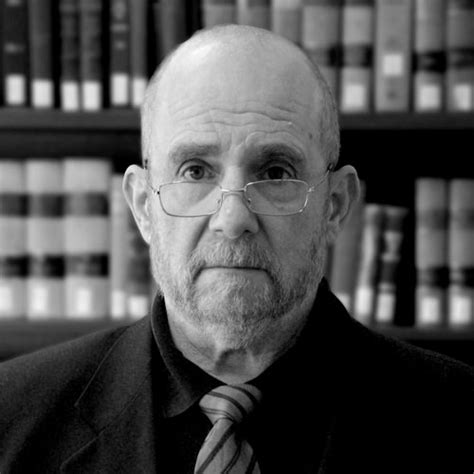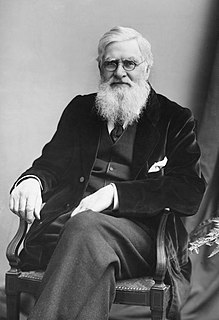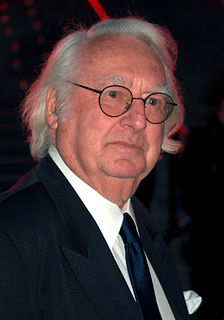A Quote by Daniel D. Polsby
Contemporary scholars have little explored the preconditions of genocide. Still less have they asked whether a society's weapons policy might be one of the institutional arrangements that contributes to the probability of its government engaging in some of the more extreme varieties of outrage. Though it is a long step between being disarmed and being murdered - one does not usually lead to the other - but it is nevertheless an arresting reality that not one of the principal genocides of the 20th century, and there have been dozens, has been inflicted on a population that was armed.
Quote Topics
Armed
Arrangements
Arresting
Asked
Been
Being
Between
Century
Contemporary
Does
Dozens
Engaging
Explored
Extreme
Genocide
Government
Inflicted
Institutional
Lead
Less
Little
Long
Might
More
Nevertheless
Other
Outrage
Policy
Population
Principal
Probability
Reality
Scholars
Society
Some
Step
Still
Though
Weapons
Whether
Related Quotes
The term "genocide" is often incorrectly assumed to mean extreme examples of mass murder associated with war, with the death of millions of individuals, as, for instance in Cambodia. Although clearly the Holocaust was the most extreme of all genocides, the bar set by the Nazis is not the bar required to be considered genocide. Most importantly, genocide does not have to be complete to be considered genocide.
In issues of recent ethnic wars and genocides - particularly if you look at Darfur - one of the most remarkable things is our inability to act, still, despite the years of analyzing and re-analyzing what it does to subsequent generations. We still find a massive inability to step in and step up to the plate, when genocide is happening as we speak.
An armed republic submits less easily to the rule of one of its citizens than a republic armed by foreign forces. Rome and Sparta were for many centuries well armed and free. The Swiss are well armed and enjoy great freedom. Among other evils caused by being disarmed, it renders you contemptible. It is not reasonable to suppose that one who is armed will obey willingly one who is unarmed; or that any unarmed man will remain safe among armed servants.
I make a difference between genocide and Holocaust. Holocaust was mainly Jewish, that was the only people, to the last Jew, sentenced to die for one reason, for being Jewish, that's all. Genocide is something else. Genocide has been actually codified by the United Nations. It's the intent of killing, the intent of killing people, a community in this culture so forth, but no other people has been really interested.
Hell is out of fashion - institutional hells at any rate. The populated infernos of the 20th century are more private affairs, the gaps between the bars are the sutures of one's own skull. A valid hell is one from which there is a possibility of redemption, even if this is never achieved, the dungeons of an architecture of grace whose spires point to some kind of heaven. The institutional hells of the present century are reached with one-way tickets, marked Nagasaki and Buchenwald, worlds of terminal horror even more final than the grave.
The animosity between India and Pakistan is deeply unfortunate and dangerous, and it's something I've long campaigned to reduce. But right now, when there's artillery being exchanged in Kashmir - which is not for from here, either - and there are 100-ish nuclear weapons on each side of the border, there's never really been a case like this where two nuclear armed countries are happily shelling each other.
Obama has always been, while President, has been close to the Queen of England, and the Queen of England has a standing policy now, which has been going on for some time, saying that we have to reduce the human population, on this planet, from 7 billion people down to less than 1! That is her avowed policy.
There might have been a hundred or a thousand life-bearing planets, had the course of evolution of the universe been a little different, or there might have been none at all. They would probably add, that, as life and man have been produced, that shows that their production was possible; and therefore, if not now then at some other time, if not here then in some other planet of some other sun, we should be sure to have come into existence; or if not precisely the same as we are, then something a little better or a little worse.
To those of us who have been following the climate debate for decades, the next few years will be electrifying. There is a high probability we will witness the crackup of one of the most influential scientific paradigms of the 20th century, and the implications for policy and global politics could be staggering.
We have been engaging the Government of Swaziland for some time on this issue of the democratization of Swaziland. In particular, I had asked the Deputy President to engage the Government on this and, indeed, he has. We will continue to do this, because we do think that, as has been communicated to the Government of Swaziland, that Swaziland must go through this democratization process, a constitution-making process in which they have been engaged for some time, and really seek a national consensus about it.
The different American experience of the 20th Century is crucial because the lesson of the century for Europe, which essentially is that the human condition is tragic, led it to have a build a welfare system and a set of laws and social arrangements that are more prophylactic than idealistic. It's not about building perfect futures; it's about preventing terrible pasts. I think that is something that Europeans in the second half of the 20th century knew in their bones and Americans never did, and it's one of the big differences between the two Western cultures.
To be an architect has been a life-long dream. Little did I know when asked at the age of 14 'what do you want to do when you grow up?' I said I wanted to be an architect. After 50 years I am still learning all what that means. Working together with so many people has been enormously gratifying. Being an architect means being a member of a fantastic team.
































